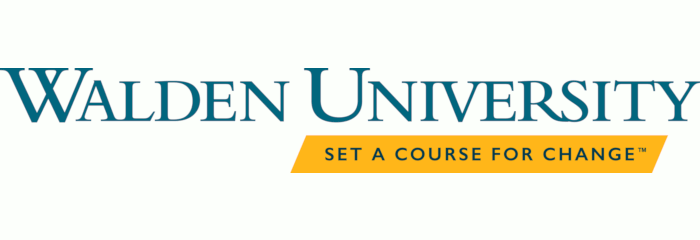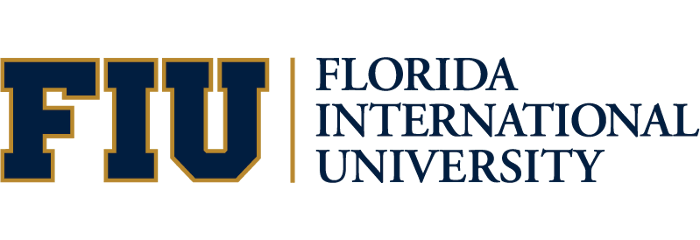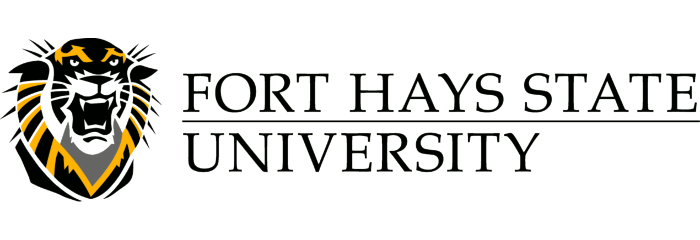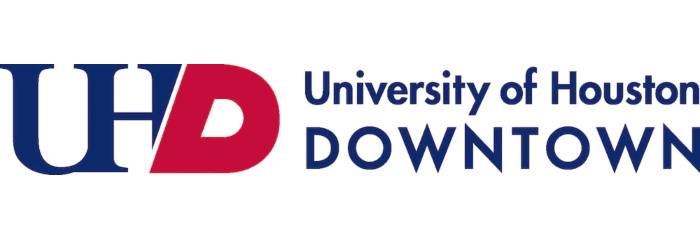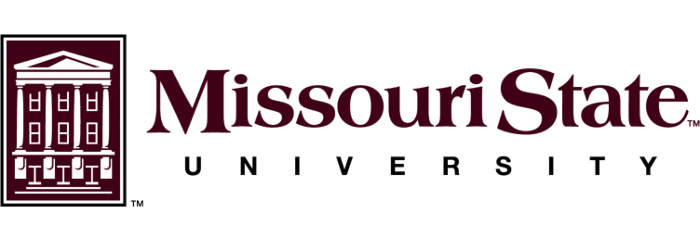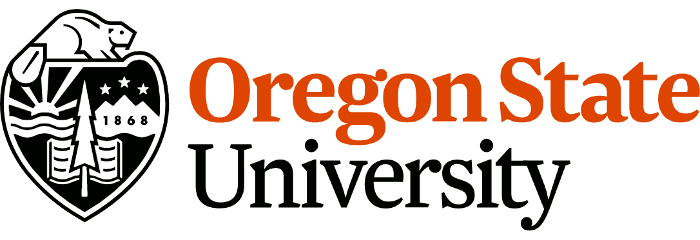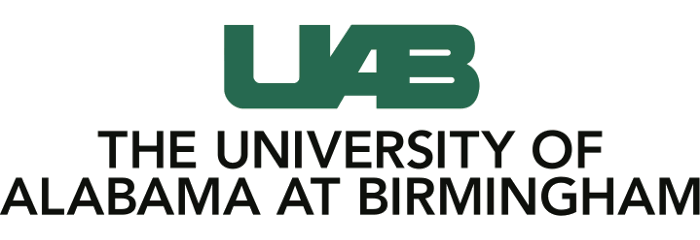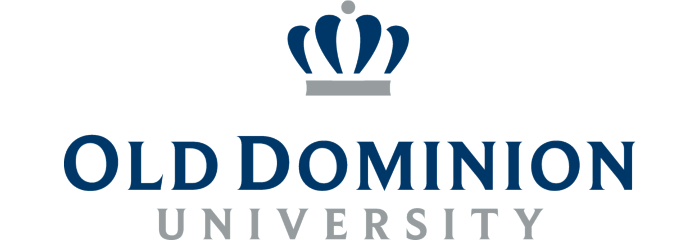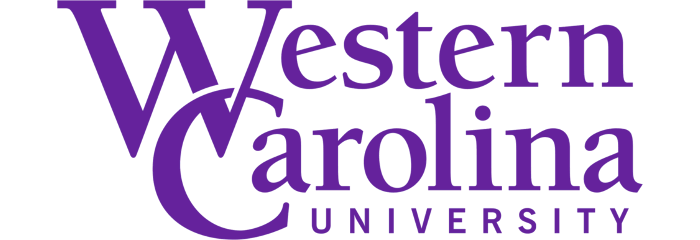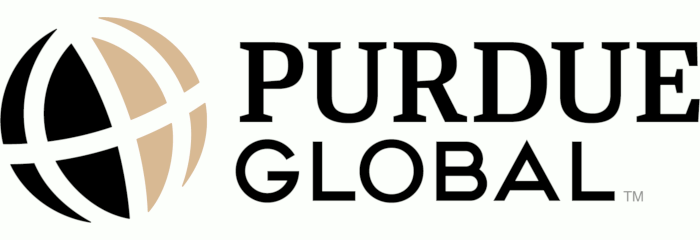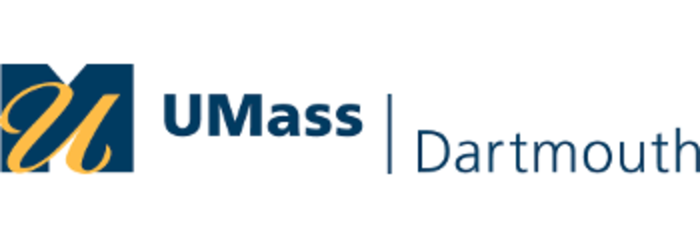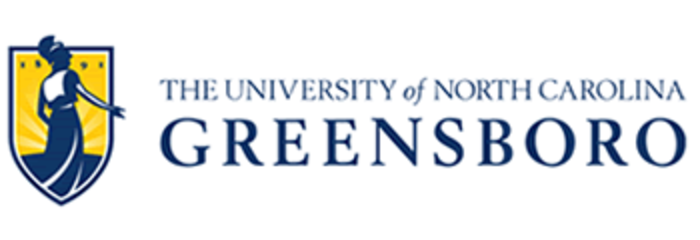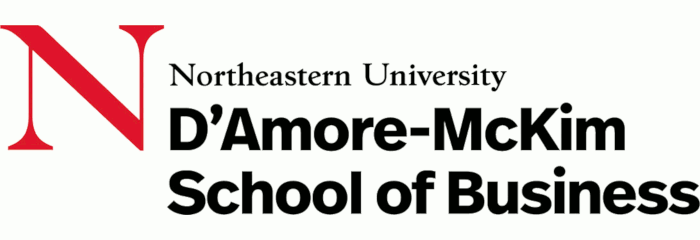Best Online Finance Degrees
Our list of the best online finance degree programs highlights accredited colleges with the highest number of finance graduates. This indicates program credibility, demand, and digital learning maturity in the finance space.
Key Takeaways:
- Florida International University ranks #1 overall, graduating 573 students from its online BBA in Finance.
- Southern New Hampshire University serves over 154,000 online students.
- Northeastern University earns the best graduation (90%) and retention (98%) rates.
- At Western Carolina University, 97% of students surveyed recommend the school.
See our methodology page for more details. We also spoke with two finance professionals, who shared how online finance students can gain real-world experience and stand out in a tech-driven financial landscape.
Best Online Finance Degrees
| Rank | School | Graduates | Annual Tuition | Median Salary | Recommendation |
|---|---|---|---|---|---|
| Florida International University | 573 | $16,997 | $76,804 | 93% | |
| Fort Hays State University | 409 | $7,719 | $52,869 | 82% | |
| Southern New Hampshire University Online | 179 | $9,900 | N/A | 69% | |
| Oklahoma State University - Main Campus | 168 | $20,937 | $82,818 | 96% | |
| University of Maryland Global Campus | 165 | $14,970 | $81,378 | 71% | |
| University of Houston - Downtown | 130 | $19,972 | $77,451 | 79% | |
| Missouri State University | 112 | $8,700 | $75,211 | 82% | |
| Oregon State University | 107 | $11,760 | $81,470 | 87% | |
| University of Alabama at Birmingham | 94 | $21,864 | $71,298 | 97% | |
| Old Dominion University | 85 | $13,170 | $67,196 | 88% | |
| Western Carolina University | 85 | $6,249 | $64,679 | 97% | |
| Purdue Global | 77 | $11,130 | N/A | 74% | |
| University of Massachusetts - Dartmouth | 54 | $10,770 | $69,363 | 81% | |
| University of North Carolina at Greensboro | 54 | $9,324 | $67,570 | 91% | |
| Northeastern University | 52 | $64,990 | $88,905 | 92% |
Best Online Finance Degrees - Program Details
- Graduates: 573
- Annual Tuition: $16,997
- Median Salary: $76,804
- Recommendation: 93%
Why we like them: FIU's program graduated the highest number of students nationwide, with 573 graduates. Perhaps this is because each online student is paired with a dedicated success coach, providing personalized guidance that many competitors do not offer.
- Graduates: 409
- Annual Tuition: $7,719
- Median Salary: $52,869
- Recommendation: 82%
Why we like them: FHSU's finance program has a quantitative core that goes over statistics and economics alongside math. We believe this ensures you gain the analytical skills to meet industry demands. You also benefit from the resources of the Robbins Banking Institute and extracurricular groups, such as the Finance Club and Tiger Money Mentors.
- Graduates: 179
- Annual Tuition: $9,900
- Median Salary: N/A
- Recommendation: 69%
Why we like them: One of the most notable features of SNHU’s online finance program is the option to pursue a CFP® Board-registered concentration in financial planning, allowing you to meet the educational requirements to sit for the Certified Financial Planner (CFP®) exam.
- Graduates: 168
- Annual Tuition: $20,937
- Median Salary: $82,818
- Recommendation: 96%
Why we like them: OSU delivers its online finance program through the respected Spears School of Business. It's unique that OSU specifically includes "energy finance" as a targeted outcome.
- Graduates: 165
- Annual Tuition: $14,970
- Median Salary: $81,378
- Recommendation: 71%
Why we like them: UMGC's finance program prepares you for the Certified Management Accountant (CMA) and CFP exams, with a CFP Board-approved course of study offered even if you are not fully enrolled. You also gain eligibility for a discounted Certified Risk Specialist (CRS) training bundle via an alliance with Interfima.
- Graduates: 130
- Annual Tuition: $19,972
- Median Salary: $77,451
- Recommendation: 79%
Why we like them: UHD's BBA in Finance sets you up for CFP, CFA, and CTP designations. And interestingly, the program actively encourages pairing the finance degree with minors in accounting, economics, or marketing, helping students build niche expertise.
- Graduates: 112
- Annual Tuition: $8,700
- Median Salary: $75,211
- Recommendation: 82%
Why we like them: MSU's online BS in Finance includes direct preparation for the CFA Level 1 Exam, and it holds the distinction of being both Higher Learning Commission and AACSB accredited, reinforcing its industry relevance.
- Graduates: 107
- Annual Tuition: $11,760
- Median Salary: $81,470
- Recommendation: 87%
Why we like them: As part of OSU’s online finance program, housed in the AACSB-accredited College of Business, experiential learning is mandatory. You can either complete a project, thesis, internship, or study abroad from anywhere.
- Graduates: 94
- Annual Tuition: $21,864
- Median Salary: $71,298
- Recommendation: 97%
Why we like them: UAB’s award-winning, student-managed investment fund, the Green and Gold Fund, offers you a rare chance to gain hands-on investment experience, differentiating UAB’s program from more theoretical offerings at other institutions.
- Graduates: 85
- Annual Tuition: $13,170
- Median Salary: $67,196
- Recommendation: 88%
Why we like them: The program is AACSB-accredited, which is always worth mentioning because this high academic standard is met by only a small fraction of business schools worldwide. One distinctive aspect is the military pathway agreement, which enables service members and veterans to translate military experience into academic credit.
- Graduates: 85
- Annual Tuition: $6,249
- Median Salary: $64,679
- Recommendation: 97%
Why we like them: WCU is the most recommended school by students based on surveys we've collected, with 97% of students endorsing the school. The finance bachelor's has multiple tracks, including Banking Finance, Corporate Finance, and Financial Planning. All students are required to complete a hands-on internship as well.
- Graduates: 77
- Annual Tuition: $11,130
- Median Salary: N/A
- Recommendation: 74%
Why we like them: Accredited by ACBSP, PG’s online finance degree offers specialized tracks in FinTech, Real Estate, Wealth Management, and General Finance. PG boasts that 96% of recent graduates were employed or continued their education within 18 months of graduation.
- Graduates: 54
- Annual Tuition: $10,770
- Median Salary: $69,363
- Recommendation: 81%
Why we like them: UMassD has an innovative Accelerated Bachelor’s to Master’s Pathway, which empowers you to complete some graduate courses during your undergraduate studies. The finance bachelor's degree holds AACSB accreditation.
- Graduates: 54
- Annual Tuition: $9,324
- Median Salary: $67,570
- Recommendation: 91%
Why we like them: UNCG's finance program stands apart through its AACSB dual accreditation in both business and accounting. The curriculum has plenty of experiential opportunities like the Spartan Investment Club, which provides CFA exam preparation and real-world investment challenges.
- Graduates: 52
- Annual Tuition: $64,990
- Median Salary: $88,905
- Recommendation: 92%
Why we like them: NU's finance and accounting management degree is distinctively AACSB accredited. A hallmark feature is the PlusOne accelerated master’s option, allowing you to begin graduate coursework during your undergraduate studies and achieve a master’s degree up to a year sooner.
Online Finance Degrees: Advice From a Finance Educator and a Certified Financial Planner
Finance professionals Dennis Shirshikov and Kelly Renner bring two distinct perspectives to the value of finance education.
Shirshikov, a CUNY professor and startup strategist, emphasizes the career value of online degrees and early credentials like the CFA. Renner, a Certified Financial Planner™, highlights the importance of mentorship, networking, and pursuing the CFP to stand out in the field. Both stress that practical experience — through internships, investing, and client work, for example — is critical for building success in the finance world.
What Makes an Online Finance Degree Worth It

Finance Educator
"I’m Dennis Shirshikov, Founder and Educational Leader at itutor.com and a professor at the City University of New York, where I integrate academic theory with practical application in finance, investing, and risk modeling. My career has been enriched by both traditional and online educational models, which uniquely positions me to discuss the evolving landscape of finance education.
I was looking for a degree that could fit around my work commitments and that I could start applying the knowledge to how I carried on in my role from day one which the online finance degree offered."
What certifications have been the most valuable in your career?
"From personal experience, I have found that credentials in the space of Finance like CFA, CPA helps, in addition to building credibility, in devoting adequate understanding of how financial analysis and regulations work in practice. These credentials are best sought after early on in one’s professional journey as this offers a systematic way of grasping advanced financial concepts as a precondition for specialty within any finance domain."
For someone just starting out in finance, what’s the best way to gain practical experience?
"The best approach is multifaceted; internships alongside personal investing and proactive networking are all excellent pathways to achieve real, hands-on experience.
Internships familiarise you with the workings of financial institutions, personal investing refines your analytical skills and risk management, and networking expands opportunities for mentorship and collaboration.
An early informal networking meeting where I turned to the person next to me resulted in a mentor who connected the academic theory with the market reality that I credit for having developed my philosophy toward finance and education."
In Finance, Mentorship Matters More Than Your Major

Certified Financial Planner
How does the CFP designation impact your career growth in the financial planning field?
"I have the CFP certification and I believe this is very helpful as a professional in financial planning. The knowledge is extensive and this is why I will require any financial planners working at our firm to obtain the certification. This certification gives you a deeper understanding of financial planning and puts you in a higher position than those without it. As soon as you decide this is your profession, I encourage you to start preparing for this certification because it is not easy - hence the 40% fail rate."
How can aspiring financial planners figure out if this career is right for them?
"Networking and an internship with the right company can be very helpful. This career is not for everyone, but if you can find the right people to talk to in the field you can decide if it is right for you."
Most financial planners will take time to have coffee or lunch to encourage more in our field, you just have to ask.
"There are many ways to pursue finance, for example, I used to be in corporate finance and realized that it is completely different from personal finance, which I prefer. One of the best things I ever did in my career was find a mentor that has been successful and had values that aligned with mine. Most financial planners will take time to have coffee or lunch to encourage more in our field, you just have to ask. Do not be afraid to ask questions, and if your schedule allows, an internship can be an amazing opportunity."
Online Finance Degrees
A bachelor’s degree in finance combines a core of business classes with the financial expertise to develop financial reports, analyze financial data, and effectively invest an individual's or organization’s capital. Some finance programs include courses from the arts and humanities for a Bachelor of Arts, while others focus on building industry-specific skills, leading to a Bachelor of Science. Some schools offer a Bachelor of Business Administration with a concentration in Finance.
Like most bachelor's degrees, a finance degree typically requires the completion of 120 credit hours of coursework. Most students need approximately four years to complete graduation requirements. However, students who have already taken some college classes may be able to graduate in less time, and those who've earned associate degrees may earn a bachelor's degree in as little as two years. Applicants need a high school diploma or the equivalent to be considered, and they may be required to have a minimum GPA of 2.5 and high scores on the ACT or SAT. Tuition rates for online finance programs vary, but some schools offer in-state resident tuition to online students.
When researching programs, prospective students need to look for accredited online finance programs. Accreditation is a designation granted to institutions of higher education that meet high standards with regard to their curricula, faculty members, student resources, and research capabilities. Finance degree programs are often accredited by one of two agencies specializing in business programs: the or the .
If you want to save money on tuition, check out our page of the most affordable online finance bachelor's degrees.
Is a Finance Degree Better Than an Accounting Degree?
Both finance and accounting are math-heavy programs that involve a great deal of analytical thinking, which some students may find challenging. However, these majors are well suited to those who are detail-oriented and enjoy working with numbers. Accounting degrees focus on documenting, tracking, and interpreting financial data primarily for business organizations, whereas a finance major focuses on managing, growing, and protecting money for individuals and organizations. Finance may be the more versatile of the two, as a degree in finance prepares students for a broad range of occupations in many types of work environments.
Online Bachelor's in Finance Courses
Although finance programs include several specialized courses on finance, they often begin by introducing students to the fundamental concepts of business. Core business courses typically included in an online finance program are Principles of Management, Accounting, Business Law, Macroeconomics, Microeconomics, Business Information Systems, and Introduction to Corporate Finance. Students then proceed to take core courses in finance, which may include the following:
International Finance
Especially useful for students headed toward careers in international business, this course explores some of the common characteristics and financial uncertainty involved in global finance. Key concepts include fixed versus floating exchange rates, currency swaps, currency derivatives, international tax management, diversification, and emerging equity markets.
Money and Banking
In this course, students explore the role of banking and other financial institutions in the economy. Some of the many topics covered include money markets, interest rates, capital markets, the Federal Reserve system, bank management, foreign exchange markets, and monetary theory and policy. Coursework may also explain the causes and outcomes of recent financial crises.
Risk Management and Insurance
All business organizations face some degree of financial risk, so this course teaches students common methods of risk assessment and strategies for minimizing an organization's exposure. Coursework also covers the need for insurance — one of the primary tools used in managing risk — and details various types of insurance, such as life, property, medical, and liability insurance.
Advanced Corporate Finance
While introductory Corporate Finance courses typically provide a broad overview for all business students, this advanced course expands on many key topics such as valuation, cost of capital, capital management, equity and debt financing, and option pricing theory and applications. Coursework challenges students to think like financial executives when making strategic decisions. This course may be considered a capstone course in some programs.
What Can You Do With an Online Bachelor's in Finance Degree?
A career in finance may be an excellent choice for those interested in wealth management and growth, whether it's for individuals or business organizations. on average, but many finance professionals earn even higher wages.
The following list includes some entry-level careers open to finance majors, as well as potential paths for growth in the field:
Personal Financial Advisors
work with individuals and families to help them meet their financial goals, such as paying off a mortgage, providing college tuition for children, or saving money for retirement. Advisors make recommendations regarding individual investments as well as overall portfolios of investments.
Financial Analysts
There are several specializations within the field of financial analysis, but in general, help businesses and individuals manage their investments in order to make a profit. For example, a financial analyst recommends the investment vehicles that should generate appropriate returns after determining an organization's time frame, investment goals, and risk tolerance.
Financial Managers
ensure that the funds in an organization are managed appropriately and strategically.
Budget Analysts
play a crucial role in helping organizations, both public and private, manage their finances effectively.
Is an Online Finance Degree Actually Worth It?
In finance, a major in finance or business is typically a prereq for entry-level roles. Still, many individuals face unique circumstances, including career aspirations, personal responsibilities, and financial constraints, that should be considered when choosing a college.
For those still deciding on the best fit, it may be beneficial to weigh the advantages and disadvantages of a finance degree:
Potential Pros
-
A finance major builds skills that are widely applicable, like analytical and quantitative skills covering financial modeling, data interpretation, and risk analysis. Students gain a solid understanding of markets, financial systems, and investment strategies, while also learning to evaluate financial statements and apply economic theory. However, there's also the underappreciated set of soft skills earned, like communication skills that help students to explain complex concepts clearly to clients or teams. Ethical decision-making, professional judgment, and familiarity with software are other underappreciated advantages.
-
A degree that's this wide-ranging in nature means that you're pulling from various business disciplines and getting experience in a range of niches. Accounting and business are the obvious ones, but there's also psychology, real estate, banking, and a lot of cross-over career options.
-
Learning via online education broadens your scope in terms of what institutions are suddenly available to you. When it's online, students can select the best finance program for their personal career goals and budget without having to relocate.
Potential Cons
-
The stress is real in the finance world. To succeed may require long days, including evenings and weekend devoted to your work. Of course, this is up to the individual in terms of how to handle a work/life balance. Still, it's important to be aware that finance careers are intellectually (and sometimes emotionally) taxing because you're often managing large amounts of money for others.
-
Finance is a competitive industry. Yes, there are many types of jobs you can enter, but the field remains highly competitive when it comes to coveted roles in investment banking and finance.
-
Some finance jobs may require additional certifications or specialized knowledge beyond a bachelor's degree. Graduates may need to invest even more time and resources than a mere bachelor's to attain these qualifications and to actually stand out in the field.
A finance degree equips students for roles in industries beyond the traditional banking and investing paths, such as fintech, healthcare finance, entertainment budgeting, energy trading, nonprofit management, and more. These careers draw on a mix of hard and soft skills, like data analysis, ethical judgment, and strategic communication, to name a few.
While the field offers flexibility and high earning potential, students should also be prepared for the intensity and competition that come with many finance roles, especially in high-stakes sectors.
We know that college tuition can be pricey, even online schools. For this reason, you may want to check out or list featuring the most affordable bachelor's in finance and most affordable master's degrees in finance for budget-friendly options.
Student Reviews of Online Finance Programs
I have had a great experience with CSU-Global, I am in my sophomore year of a BA in Finance and a concentration on Risk Management. All the Economic, Finance, and Risk Management classes are accepted by the Board of Certified Financial Planners, and count toward my long-term goal of becoming a C.F.P.. The student advisors, the finance dept., and the professors have all been fantastic. That being said, if you don't apply yourself your going to get terrible grades and have a bad experience, O have... Read More
Review Date: 11/24/2024
Would Recommend: Yes
Helpful for Career: No
This is a university that is significantly more effective for the self-motivated learner. If you want to get an easy degree, you can probably make it through SNHU's curriculum without much effort. The online forum does away with a lot of the rigidity of brick-and-mortar institutions and it is laughably easy to out-shine your classmates. In most of my classes, about 60 to 80% of the discussion posts (a semi-weekly writing-intensive assignment) are basically nonsense, illogical, or off topic. That's... Read More
Review Date: 6/5/2018
Would Recommend: Yes
Helpful for Career: No
I was a transfer student and finished my bachelor's degree at SNHU. I completed 60 credit hours at a local community college and I needed to find an affordable school that was 100% online where I could finish my degree. I found what I was looking for at SNHU. In my experience, I have nothing but good things to say about SNHU. The staff is very helpful and friendly, and the instructors are very smart people. Honestly, I was a little hesitant about this school at first. But after a few classes I quickly... Read More
Review Date: 11/1/2018
Would Recommend: Yes
Helpful for Career: Yes
Great program. Professors are there when you need them. Everything is there when you need it. They offer course tutoring if you need the service. Everything is very organized. If you know how to manage your schedule well, this program is right for you. You are allowed to take 2 classes a semester but are able to add if you feel like you can handle more.
Review Date: 4/18/2015
Would Recommend: Yes
Helpful for Career: No
I've been attending online classes with University of Phoenix for a little over a year now and overall I'm satisfied. There have been a few kick ups along the way though. When I was first enrolling my admissions councilor was very helpful and thorough. I later found out, however, that I had been enrolled in the wrong degree program (Business Administration instead of Business Finance). When I found this out I was told in order to change my degree program I might have to take the placement tests again... Read More
Review Date: 11/30/2014
Would Recommend: Yes
Helpful for Career: No
I started my classes on Jan 5th, 2014. It was truly a venture in learning. I have read some of the reviews and seen how some have bad mouthed the integrity and reliability of Colorado Technical University (CTU) faculty, staff, and program design parameters. Yes... there are harder course and easier course, but every course was meant to make the student think and engage. If the student sits around complaining about how they can't find any information, I would help them and find that most of the time... Read More
Review Date: 11/6/2016
Would Recommend: Yes
Helpful for Career: Yes
I have attended Heritage University, Allied American University (online only), Campbell University (Great school), and now Hodges University (Blended). This has been due to my military and government civilian career. I have attended both online and both on-campus locations (Naples & Ft. Myers). The modern university has amazing faculty& staff, great amenities and is extremely modernized and high tech. The curriculum is not extremely challenging as the professors give you all the tools you need to... Read More
Review Date: 2/9/2017
Would Recommend: Yes
Helpful for Career: No
I chose to complete my Bachelor's degree in Business Administration and Finance. While the courses were tough, you get a lot of information and education out of them and really apply that skill set to the jobs you work. I currently am going back to complete my Master's degree in Accounting. I plan to sit for the CPA exam as well. The decision to return for my Master's degree is solely to earn enough to start a family. Currently I do not.
Review Date: 7/19/2016
Would Recommend: Yes
Helpful for Career: Yes
Chico State is a wonderful college, everything there is so close. When your hungry head to the bear and there are also several restaurants, thirsty for a drink, there's a lot of bars downtown. There's a 2 story gym right next to the parking lot which is right next to the main office which is on campus grounds. The professors are nice but still google and get some reviews before you take that professor if there is more than one professor for that class subject. They have a lot of clubs that you can... Read More
Review Date: 7/27/2015
Would Recommend: Yes
Helpful for Career: Yes
I loved Nichol's hybrid program. I took a few night courses during my degree process which were only seven weeks long. The rest of the courses I took at my convenience online. All of Nichols' professors are very professional and most are very understanding people. I felt as though the majority of them really cared about my education and wanting to give me the best lectures possible.
I would because it's a field... Read More
Choose something you love!
Review Date: 8/12/2013
Would Recommend: Yes
Helpful for Career: Yes
Florida International University is overall a great school with an ever expanding campus, and programs that are striving to go beyond the needs of today's society. The programs are ranking higher every year. I went back to FIU to get my MBA and I am extremely satisfied with the quality of the professors. They are teaching me skills that I am already applying on my day-to-day activities.
Review Date: 3/13/2017
Would Recommend: Yes
Helpful for Career: Yes
I attended the University of Florida because of the florida lottery bright futures program. If you're in a similar situation of deciding between a competitive private school and a free education from the University of Florida, I would highly recommend you taking the former. I regret going to UF as it was a big party school that had resources that were not helpful. I regretted my time at UF and want others to beware of the school.
Review Date: 4/7/2017
Would Recommend: No
Helpful for Career: No
The W.P. Carey School of Business at Arizona State University is a well rounded public state university. The reason I chose this school was mostly because of finances because they offer pretty decent merit scholarships. However, there need-based scholarships are only for a select few and not for middle class earners. In reference to the degree program, freshman are forced to take many entry level courses even if they have credits from high school and the courses themselves are relatively easy. Overall,... Read More
Review Date: 11/8/2017
Would Recommend: Yes
Helpful for Career: No
My last four years at the University of South Carolina is one I greatly appreciate. The business school here is amazing and the student atmosphere is beyond what I would have ever imagined from a large university. The professors are amazing because most of them are still working in the real world or have long-term work experience.
Review Date: 6/23/2019
Would Recommend: Yes
Helpful for Career: Yes
I got a +100k job after graduation in the bay area. Lots of people get amazing jobs either in Business, tech, finance, or other related industries. It is a fact that Santa Clara is a top10 university in the US for average salary after graduation. Santa Clara has such amazing rankings and they are just getting better each year.
Review Date: 6/11/2022
Would Recommend: Yes
Helpful for Career: No
I was a finance major and economics minor at The College of New Jersey (TCNJ). The business school at TCNJ is top-notch in terms of faculty quality and academic rigor. For the most part, the professors, and adjuncts are extremely knowledgeable on their specializations and are attentive to student concerns. The job prospects post-graduation are decent as well, and a host of career fairs, student-organizations, and networking events offer a good place to kick-off. Additionally, the business school... Read More
Review Date: 2/9/2018
Would Recommend: Yes
Helpful for Career: No
I have transferred from Georgia Perimeter College to pursue my education. I have not enjoyed attending this university. First, some of the important courses are not flexible enough for full time working students. Second, there are too many students cheating in a class. Third, parking space is just not enough for students. Between 11:30am- 2pm, theres no parking space. Finally, during 2018 graduation ceremony, they didnt have my name or seat number prepared. I registered for this ceremony in 2017.... Read More
Review Date: 5/10/2018
Would Recommend: No
Helpful for Career: No
Attending Texas Southern was the best decision I have ever made, Moving from Phoenix, Arizona to a Historically Black College in Houston, Texas was an eye opening experience. Many people believe that attending an HBCU means that you will have limited interactions with diverse people, but this could not be farther from the case. But this cannot be farther from the truth. I consistently interacted with all kinds of people from the African diaspora. I have played on the volleyball team with people from... Read More
Review Date: 6/29/2019
Would Recommend: Yes
Helpful for Career: Yes
I enjoyed my time at The University of Texas-Arlington. Arlington is located in the DFW area so there were many things to enjoy while there. The campus is really nice and the community has grown over the years. UTA is very diverse and offer many clubs and organizations for you to join. I lived on campus and it was one of the best decisions I ever made because I was near the library (which is open 24 hours). Most of the residence halls also has computer labs available for you to study. I studied as... Read More
Review Date: 8/30/2018
Would Recommend: Yes
Helpful for Career: Yes
My undergraduate experience was one of the most life changing experiences. I had the opportunity to work with real finance professionals and understand what it takes to make it in the field. I also am blessed to now understand what it means to personally finance and how to go about saving for retirement. Entering Oswego, I didn't have a clue about finance or what it meant to invest or how to go about saving anything. After much struggle and studying, I now have used multiple financial applications... Read More
Review Date: 6/29/2017
Would Recommend: Yes
Helpful for Career: Yes



